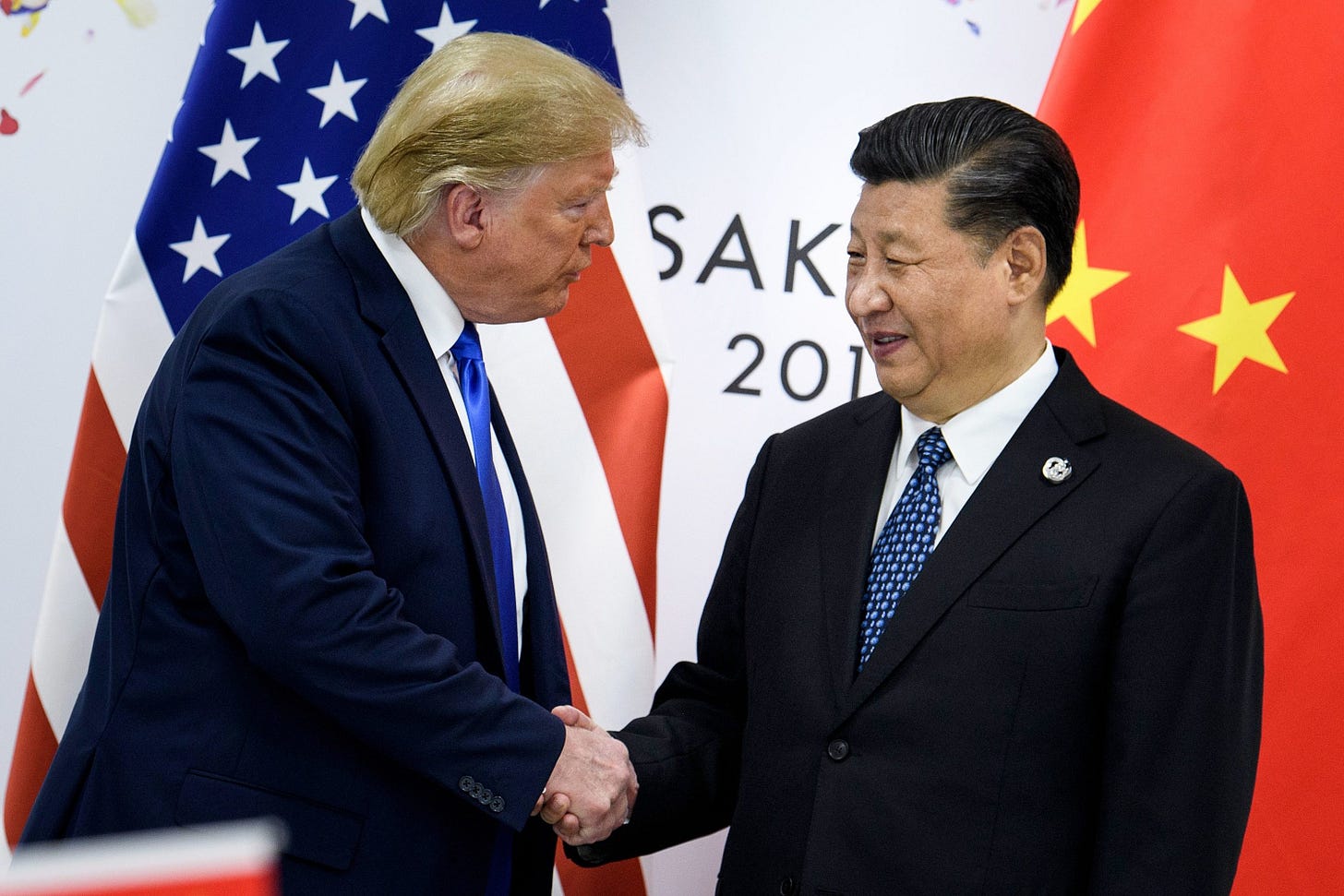Six Things to Know about Trump’s Defense Veto
The NDAA usually becomes law without a hitch. Trump decided to break a 59-year-long pattern for the stupidest reasons.

On Wednesday, President Donald Trump vetoed the 2021 National Defense Authorization Act (NDAA). For the past 59 years, the NDAA has become law with comfortable congressional majorities and uneventful presidential signatures. Trump’s veto is another first in an administration of regrettable, norm-busting firsts.
Here are six things to know about it.
1. The NDAA is the first of two steps for funding the military. It authorizes spending, but it is the separate from the legislation—a defense appropriations bill, or an omnibus appropriations bill, or a continuing resolution—that instructs the Department of Treasury to give money to the Department of Defense for the coming fiscal year. Even though since 1961 there has never been an appropriation without authorization, “unauthorized” spending regularly happens for other departments. Most of the military can be funded via appropriations without a new authorization bill being passed.
However, the NDAA does more than merely direct cash flows. First, it authorizes funds for compensation for military personnel and civilians in combat zones, which expire on December 31. It also includes renewal for other compensation and benefits, such as healthcare for National Guard members, parental leave, and housing. Mac Thornberry, chairman of the House Committee on Armed Services, warned that if the bill doesn’t become law, “Members of Congress [would be] going home for Christmas while many military families would have their pay go down.” It looks like that’s what’s now happening.
2. Without the NDAA, several military construction projects cannot proceed. According to Bloomberg Government, “the Pentagon would miss out on almost $6 billion for new construction projects to protect military bases, munitions, and nuclear weapons” if NDAA does not become law. This is part of the reason that, for almost six decades, the legislation has been considered “must pass” even though the military can technically operate without it.
3. Most importantly, the NDAA helps set the national military policy. Sometimes, these changes are not very significant. Sometimes they are. The 2015 NDAA included the European Reassurance Initiative (originally called the European Deterrence Initiative) to correct the embarrassing state of American forces in Europe when Russia seized Crimea and invaded eastern Ukraine in 2014: Faced with the first armed seizure of territory on the continent since World War II, the United States had no tanks anywhere in Europe. The new NDAA that Trump vetoed has a similar provision strengthening American military posture in Asia called the Pacific Deterrence Initiative (PDI). Under the new NDAA, it would be the military policy of the United States to rapidly increase deterrence of China in Asia-Pacific region.
4. Congress can still appropriate funds for all of the items that the NDAA calls for, such as three new “silent” submarines and 79 F-35 stealth fighter jets, and the Department of Defense can deploy however many of them to the Asia-Pacific region it deems fit. Under the NDAA, however, it will be a part of national policy, enshrined in law, to direct these additional resources towards that region. Making such policy through law ensures congressional buy-in, telling allies and adversaries that both elected branches of the government are unified. In this case, Congress is signaling that, after Trump is gone, the United States will still recognize the threat from China. Trump has said that the NDAA is a gift to China; in reality, his veto of the bill is a gift to General Secretary Xi Jinping.
5. There are two reasons that Trump vetoed the bill. The first fight came over the military bases named after Confederate generals. It is ridiculous that the United States military has for so long honored those traitors who killed its members and sought to topple the United States government. It makes just as much sense to have a base named after Robert E. Lee as it would to have a Fort Benedict Arnold.
Many respected military leaders have expressed support for renaming the bases, most prominently retired Army Gen. David Petraeus. Another retired Army general, Stanley McChrystal, wrote that he had thrown out the portrait of Lee that he used to own. Marine Corps Commandant David Berger banned the rebel flag on Marine bases.
Trump says he doesn’t like losers, but to make an exception for rebel leaders like Lee and Braxton Bragg, he’s willing to stonewall (so to speak) the military’s funding and policy process. Someone ought to tell the president that Bragg was captured.
6. The second reason for Trump’s veto is somehow even more ridiculous. He is annoyed that some social media have been fact-checking him. The easy way to fix the problem is to stop lying. Trump, however, wants to get rid of section 230 of the Communications Decency Act that liberates websites from being legally liable for what their users post. How will that help with the fact-checking? It won’t. It will require them to be even more rigorous to avoid legal problems. But Trump threatened earlier this month to veto the NDAA if it did not also repeal section 230—which, to be clear, has nothing to do with military policy.
The commander-in-chief brags about being tough on China and loving the troops, but he is trying to cut benefits for uniformed servicemembers and reject a policy of deterring Chinese aggression so he can honor treason and annoy Twitter. January 20 can’t come soon enough.

